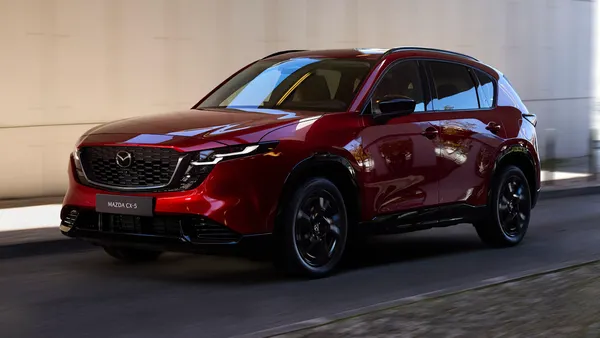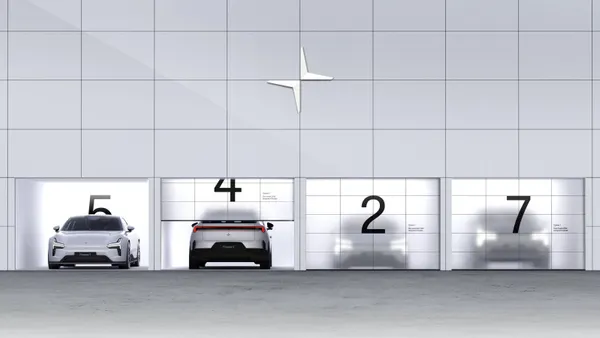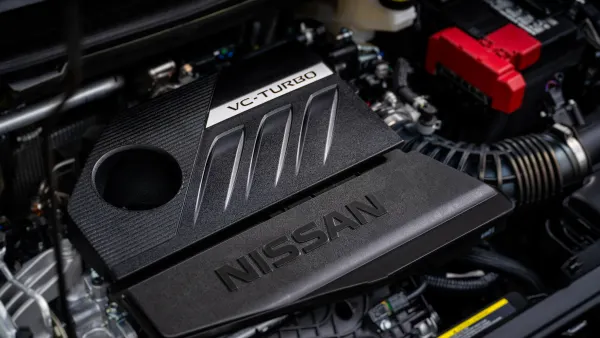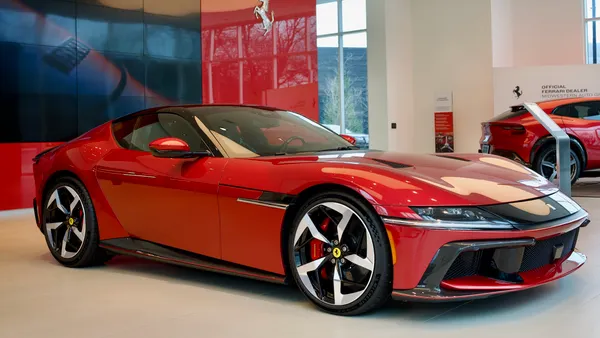Editor's note: This story is part of the WardsAuto digital archive, which may include content that was first published in print, or in different web layouts.
Another step is being taken this year toward the commercialization of hydrogen-powered vehicles, with the launch of a research project funded by the European Union that will see participants driving standard hydrogen-powered cars throughout their daily lives.
Called ZeroRegio, the project will see five Frankfurt airport employees and three local government officials from Mantova, in northern Italy, driving Mercedes A-Class and Fiat Panda hydrogen-fuelled cars, respectively.
They will refuel from one station in each city.
The aim, says Dirk Lorbach, assistant project director, of coordinator Infraserv in Germany, is to collect real-world data.
“Technical information will be taken from the cars and sent by the Internet every night to DaimlerChrysler (AG),” Lorbach tells Ward’s. “This will be used to improve the refueling system and the cars.”
The Frankfurt refueling stop will be established by October, pumping hydrogen via a 1.5-mile (2.4 km) pipeline from a nearby chlorine factory, where hydrogen is a hard-to-sell by-product.
The airport workers will drive the cars beginning in November.
The A-Class models have a take pressure of 10,150 psi (700 bar) and a refueling pressure of 13,050 psi (900 bar). In practical terms, this means it will run about 150 miles (241 km) without needing to be refueled.
“That’s very good already,” Lorbach says of the A-Class’ range. Newer hydrogen cars under development at DC may run up to 300 miles (483 km), he says.
The Italian arm of the project will start a little later, with its refueling station and car fleet operating beginning in April. It initially will involve hydrogen bottles, but by the end of 2007, its refueling station will use hydrogen generated via steam reforming from natural gas taken from the national pipeline network.
This is not simply a technical exercise however: ZeroRegio is attempting to seed a commercially sustainable system of hydrogen-car operation.
The location of the trials was deliberate, Lorbach says. Both of the cities chosen for the testing are considered wealthy municipalities, with plenty of high-income households that ultimately could afford hydrogen-powered cars, expected to be more expensive initially than gasoline vehicles.
Furthermore, the refueling points have been located on busy commuting roads and are combined with gas and diesel pumps. That way, when DC launches its hydrogen cars commercially (probably in 2010), possibly following a launch by BMW AG, well-positioned refueling stations already will be in place.
With growing demand, refueling points could be set up in other wealthy urban zones. But the question remains whether hydrogen-fueling stations should come before there is sufficient demand for them.
Lorbach recommends a dual approach that by and large waits for the big auto makers to produce the hydrogen-powered vehicles but also encourages the growth in refueling infrastructure via public subsidies.
“It looks as if (fuel cell vehicles) won’t work without government help,” he says. “There has to be a tax reduction for hydrogen, at least. The most feasible strategy seems to be building refueling stations in crowded areas where people can afford hydrogen cars.”
The project is being funded in part by the European Commission. As well as involving DC and the Centro Recerche Fiat, other participants include Linde Gas & Engineering, TUV Technische Uberwachung Hessen and Agip Deutschland, all of Germany; and EniTecnologie, Sapio Produzione Idrogeno Ossigeno and CRF Societa Consortile per Azioni of Italy.
Universities participating in the program include Lunds (Sweden), Roskilde (Denmark) and Luigi Boccone (Italy).









